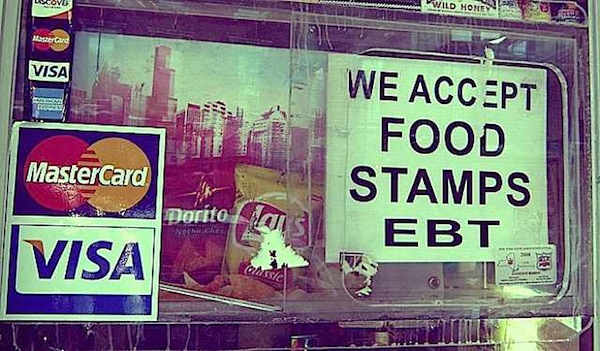Partisan Divide on Farm Bill Creates Uncertain Future for Food Stamps

When the House Republicans passed a farm bill earlier this month without including the food stamp funding that has traditionally gone along with such bills, Democratic lawmakers raised an outcry. House Minority Leader Nancy Pelosi told the GOP
So, what will happen to food stamps -- now called the Supplemental Nutrition Assistance Program (SNAP) -- now?
A separate food stamp bill may be proposed later, according to House Agriculture Committee Chairman Frank D. Lucas (R-Okla.). If that doesn't happen, SNAP basically stays the way it is right now.
However, that doesn't necessarily mean all is well. Families receiving food stamps are already slated to take a small monthly cut (estimated at around $25-$30 for a family of three) under current legislation, according to Shannon Spillane, director of communications for the Center on Budget and Policy Priorities.
Still, the main point to understand is that SNAP is not being done away with or cut by the Republican farm bill coup. The real danger might be if House Republicans actually do design a separate food stamp bill, Spillane explained.
"We think it is likely the GOP will come up with a SNAP-only bill designed to pass solely with Republican votes, which could contain much deeper cuts than the farm bill that passed the House agricultural committee earlier this year," she said, pointing out that the earlier bill -- which is not the same as the one the House just passed -- would have cut $20 billion from SNAP over 10 years.
So far, the concern seems to center around what Republican lawmakers might do, rather than what has actually been done. Representatives from the Urban Institute and from Feeding America declined to speculate on SNAP's future, underscoring the uncertainty of the current situation.
To complicate matters, President Obama has threatened to veto any farm bill that does not contain food stamp legislation.
Unless lawmakers find a way around this latest instance of partisan gridlock, it seems likely SNAP will remain mostly untouched for the time being. Until things are resolved, though, some Democratic lawmakers may continue to prey on the fears of those who need the program, in order to gain the support of the lower-income urban demographic.




